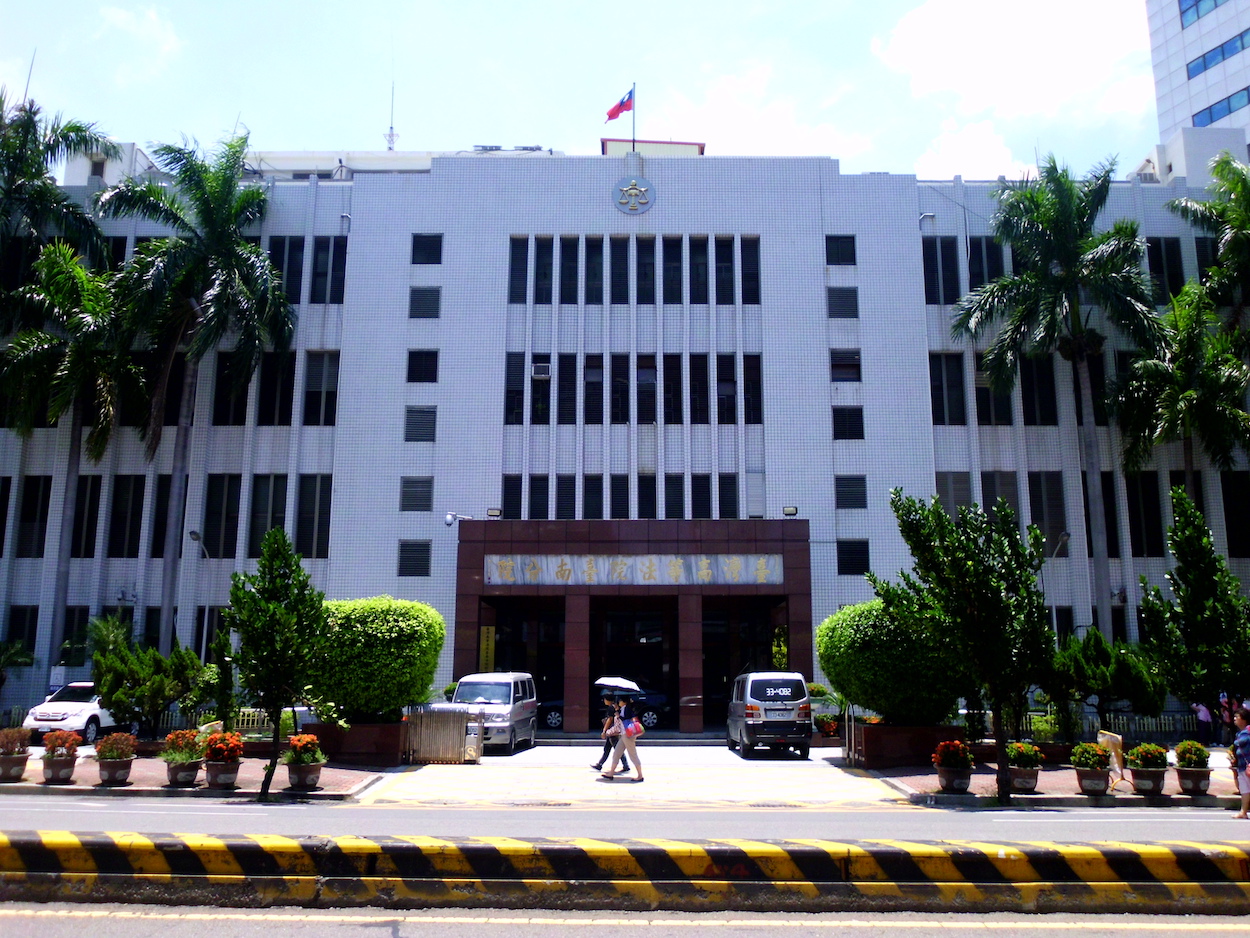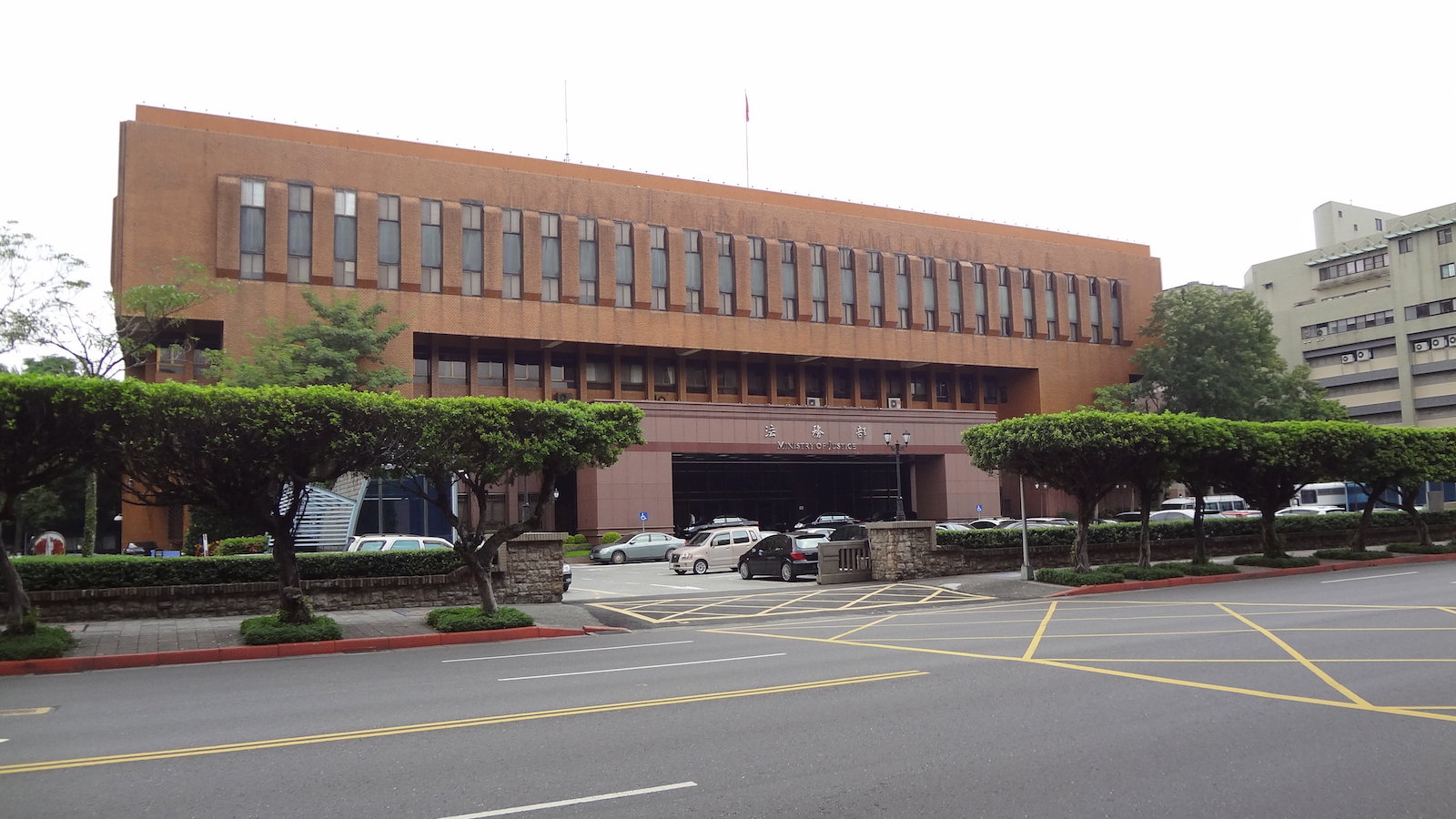by Brian Hioe
語言:
English
Photo Credit: H.T. Yu/WikiCommons/CC
THE DEATH SENTENCE for 41-year-old Hsieh Chih-hung was overturned last week by the Tainan High Court, with opponents of capital punishment hailing the decision as one that corrected a longstanding miscarriage of justice in Taiwan.
Hsieh had been on death row for 19 years, having originally been found guilty in October 2001 for two murders and a rape that took place on June 24th, 2000. Hsieh was accused of being the accomplice to a man named Kuo Chun-wei in murdering an 18-year-old woman surnamed Chen and a 68-year-old man surnamed Chang.
 The Tainan High Court. Photo credit: 勤岸/WikiCommons/CC
The Tainan High Court. Photo credit: 勤岸/WikiCommons/CC
Hsieh was then around 21-years-old, meaning that Hsieh has spent most of his adult life on death row while imprisoned at the Tainan Detention Center. Hsieh initially confessed to the crimes, but subsequently maintained that the confession had been extracted by torture—hardly the first time that Taiwanese police have been alleged to have extracted confessions from suspects through torture in past decades. Seven retrials found Hsieh and Kuo guilty and upheld their death penalties before the ruling by the Tainan High Court last week overturned this.
Police have, notably, been unable to produce the audio recording or written transcript of Hsieh’s confession. Likewise, at the time of his arrest, Hsieh also wrote a three-page document describing his whereabouts at the time of the two murderers, but this document was withheld from prosecutors by police. As a result, with this new evidence, the Taiwan High Prosecutors’ Office filed for a retrial in September 2018, which was accepted in March 2019.
Apart from that police were unable to produce the audio recording of Hsieh’s confession, claims by the police have demonstrated inconsistencies. For example, police claimed that Chen had been raped on a couch in her home by Hsieh and Kuo. However, there was no couch in Chen’s home.
Though Kuo claimed that Hsieh was his accomplice in the murders, an examination by a coroner found that the stab wounds on Chen and Chang’s bodies could have been committed by one person. Kuo was also diagnosed with antisocial personality disorder by a psychiatrist, calling his testimony into question.
There have been a number of similar cases in recent years in which individuals on death row were found to have been sentenced to capital punishment on flimsy evidence and their cases subsequently overturned. Examples of such cases in past years include the Cheng Hsing-tse case, the Hsu Tzu-chiang case, and the cases of the “Hsichih Trio”, Su Chien-ho, Liu Bin-lang, and Chuang Lin-hsun. However, at least in the case of Chiang Kuo-ching’s 1997 execution, a man later found to be innocent was executed on charges of murder and rape.
In some of these cases, individuals were put on death row for decades because of confessions extracted by torture by the police. Particularly as many of these cases go back during or before Taiwan’s democratic transition, one notes that the use of torture by the Taiwanese police was a practice that took place during authoritarian times, sometimes with a view that assumed guilt before innocence rather than vice-versa.
 The Ministry of Justice. Photo credit: Solomon203/WikiCommons/CC
The Ministry of Justice. Photo credit: Solomon203/WikiCommons/CC
To this extent, it is also not uncommon for crucial evidence, such as recordings or transcripts of murder confessions, to have gone mysteriously missing. It is often suspected that this takes place because of police hoping to cover up wrongdoing.
Convictions are all the more likely to take place because of “dinosaur judges”, who act upon their political views or social mores and disregard due legal process in the judgments they issue in criminal cases, or prosecutors who are unwilling to drop charges in spite of the evidence. Judicial reform advocates have pointed to how the actions of both judges and prosecutors have resulted in cases of wrongful convictions in Taiwan. To this extent, apart from cases of wrongful convictions, this phenomenon has resulted in the executions of mentally ill individuals.
However, by the time such cases are cleared up, if this happens at all, condemned individuals have lost decades of their lives in jail, and sometimes spent years in which they lived each day under the uncertainty of whether they could be executed that day. This seems to have been the case with Hsieh Chih-hung and it is likely true of other cases as well, potentially including other individuals currently on death row.

